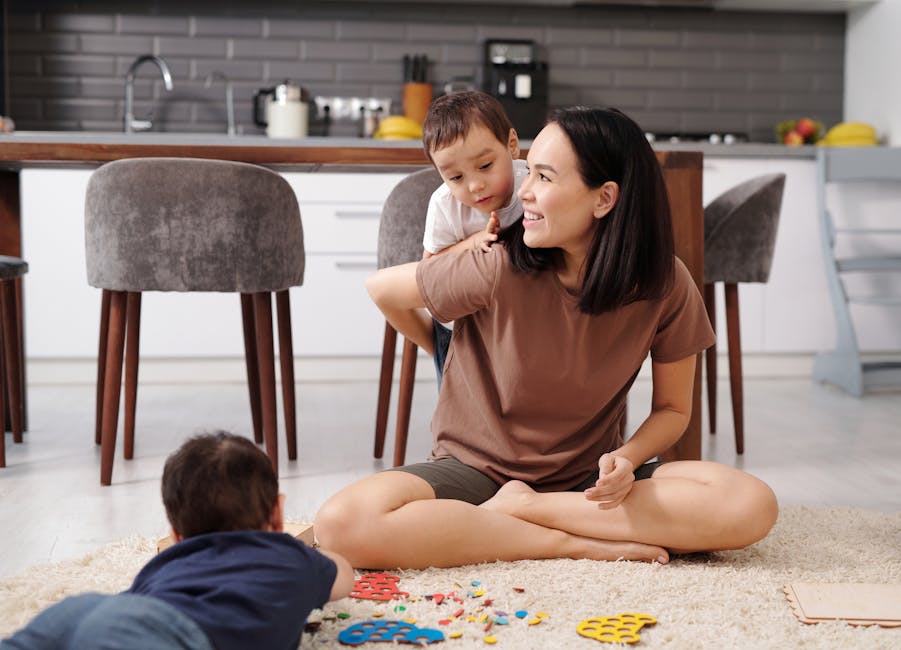The Impact of Toys on Emotional Development in Children
Every parent wants the best for their child, and understanding the role of toys in emotional development is crucial. Toys are not only tools for entertainment but also vital components in nurturing a child’s emotional growth. In this blog post, we explore the profound impact toys have on children’s emotional development, offering insights into how you can select the best toys to support your child’s emotional well-being. 🧸
Table of Contents
1. Introduction
2. The Role of Toys in Emotional Development
3. Types of Toys and Their Emotional Benefits
4. Choosing the Right Toys for Emotional Growth
5. Conclusion
6. FAQs
Introduction
From the moment children are born, they are surrounded by toys. Whether it’s a soft plush bear or colorful building blocks, toys are more than just fun objects; they play a pivotal role in a child’s development. But how exactly do these seemingly simple objects influence a child’s emotional well-being? Read on to discover how toys contribute to emotional growth, helping children express, manage, and understand their feelings. 🎨
The Role of Toys in Emotional Development
Toys offer children a way to express their emotions and understand the world around them. They serve as tools for emotional expression, allowing kids to act out scenarios and process feelings in a safe environment. Play is an essential component of emotional development, and toys are the catalysts that facilitate this process. 🌈
Through imaginative play, children learn to navigate complex emotions, such as empathy, frustration, and joy. When a child plays with dolls, for instance, they often mimic real-life situations, learning how to care for others and express their feelings. This role-playing helps them understand different perspectives and develop emotional intelligence.
Types of Toys and Their Emotional Benefits
Different toys offer varied emotional benefits, and understanding these can help you choose the right toys for your child’s emotional growth.
1. Pretend Play Toys
Pretend play toys, such as dolls, action figures, and kitchen sets, encourage children to explore different roles and emotions. These toys help children understand empathy and develop social skills by mimicking real-life experiences.
2. Creative Toys
Art supplies, musical instruments, and building blocks allow children to express themselves creatively. These toys help children manage their emotions, providing an outlet for expression and reducing stress. 🎨🎵
3. Interactive Toys
Interactive toys, like puzzles and board games, teach children patience and how to handle frustration. They also encourage teamwork and communication, promoting emotional resilience and problem-solving skills.
Choosing the Right Toys for Emotional Growth
Selecting the right toys for your child involves understanding their unique needs and interests. Here are some tips to help you make the best choices:
1. Consider Age Appropriateness
Ensure the toys you choose are appropriate for your child’s age and developmental stage. This ensures the toys are engaging and safe, promoting positive emotional development.
2. Encourage Variety
Provide a range of toys that cater to different aspects of emotional growth. A mix of pretend play, creative, and interactive toys will offer a more comprehensive developmental experience. 🧩
3. Focus on Quality Over Quantity
It’s better to have a few high-quality toys that truly engage your child than a plethora of toys that go unused. Choose toys that are durable and have lasting play value.
Conclusion
Toys are more than just playthings; they are vital tools in nurturing a child’s emotional development. By carefully selecting toys that promote emotional growth, parents can help their children build a strong foundation for understanding and managing emotions. Remember, the right toys can transform playtime into an enriching experience that fosters empathy, creativity, and emotional intelligence. 🧡
FAQs
Q1: How do toys help with emotional development?
A1: Toys help children express, manage, and understand their emotions through play. They offer opportunities for role-playing, creative expression, and problem-solving.
Q2: What are some good toys for emotional development?
A2: Pretend play toys, creative toys like art supplies and musical instruments, and interactive toys like puzzles and board games are excellent for emotional development.
Q3: How can I choose the right toys for my child?
A3: Consider your child’s age, interests, and developmental needs. Aim for a variety of toys that encourage different aspects of emotional growth and focus on quality over quantity.
